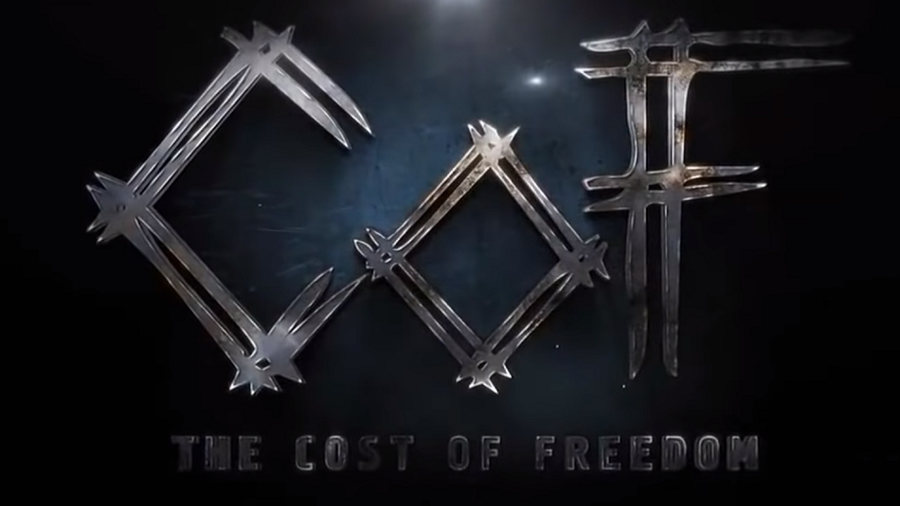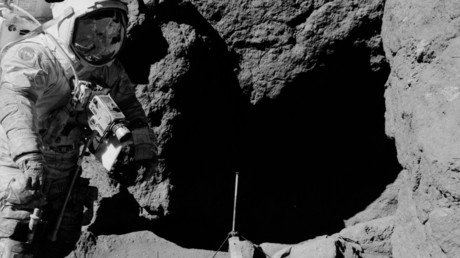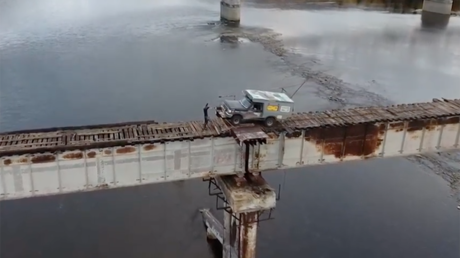Ukrainian video game set in Auschwitz has Poland up in arms

An unfinished Ukrainian video game set in Auschwitz has sparked outrage in Poland and forced the game studio to make major changes. The original game had players take on the role of inmates or SS guards in the Nazi death camp.
“Cost of Freedom” is not your casual entertainment to kill an hour or two after work. The creation of an amateur game developer team, the horror shooter set in the Auschwitz concentration camp seeks to explore themes like uncontrolled power pushing humans to evil and how big a cost one would pay to survive. At least that’s what Dmitry Dybin, the public face of the team at Aliens Games (and, some suspect, its only member) has been saying in interviews lately. Players may choose the role of prisoners in the death camp trying to escape or take revenge on their tormentors, or the guards who apparently can do whatever they want with the inmates.
Although the concept of the game is insensitive by itself, it faced outrage only when its first promotional video was creatively edited by a YouTube user Pierro Cocco. He or she took the original gameplay footage and added a song highly offensive to Poles as soundtrack. In a country that criminalized the words “Polish death camps” because that is seen as blaming the Poles for Nazi crimes, the provocation blew right up.
The “Cost of Freedom” controversy gained widespread traction in the Polish media and some politicians jumped in to express their outrage. Poland’s Institute of National Remembrance demanded criminal investigation into the game, which Polish prosecutors duly launched. The developers were targeted online by Poles calling the Ukrainian studio Nazi sympathizers and worse. There was even a popular theory that Dybin was a Russian agent-provocateur who wanted to spark a feud between Poland and Ukraine using a game he never intended to finish.
Dybin, however, says he simply had a gameplay idea that he thought would work well in a death camp setting. After the scandal, Aliens Studios tried to do damage control by erasing all references to Auschwitz from their product. A new trailer was produced, which was stripped of everything identifying the death camp, like the infamous sign “Arbeit macht frei.” It did nothing to calm things down, however.
The game designers eventually decided that half-measures wouldn’t work, and simply changed the entire setting. “Cost of Freedom” is now supposed to take place somewhere in the Antarctica, with no additional details offered. All videos of the previous version were deleted, ironically leaving only the one tampered with by the anonymous YouTuber widely available.
“Cost of Freedom” is hardly the first video game that ran afoul of highly sensitive real life issues, and some won much critical acclaim for it. The 2014 game “This War of Mine” by a Polish designer is set in a besieged city where the protagonist has to survive by whatever means necessary. Another example is “Frost Punk,” where the player has to decide whether policies like forced child labor and public executions are necessary in a city threatened by global climate change. Yet another example is “Papers, please,” where you play a customs officer – a tiny cog of a huge oppressive regime – who must choose between toeing the line and keeping his family cared for and having pity for folks trying to flee.
Think your friends would be interested? Share this story!














